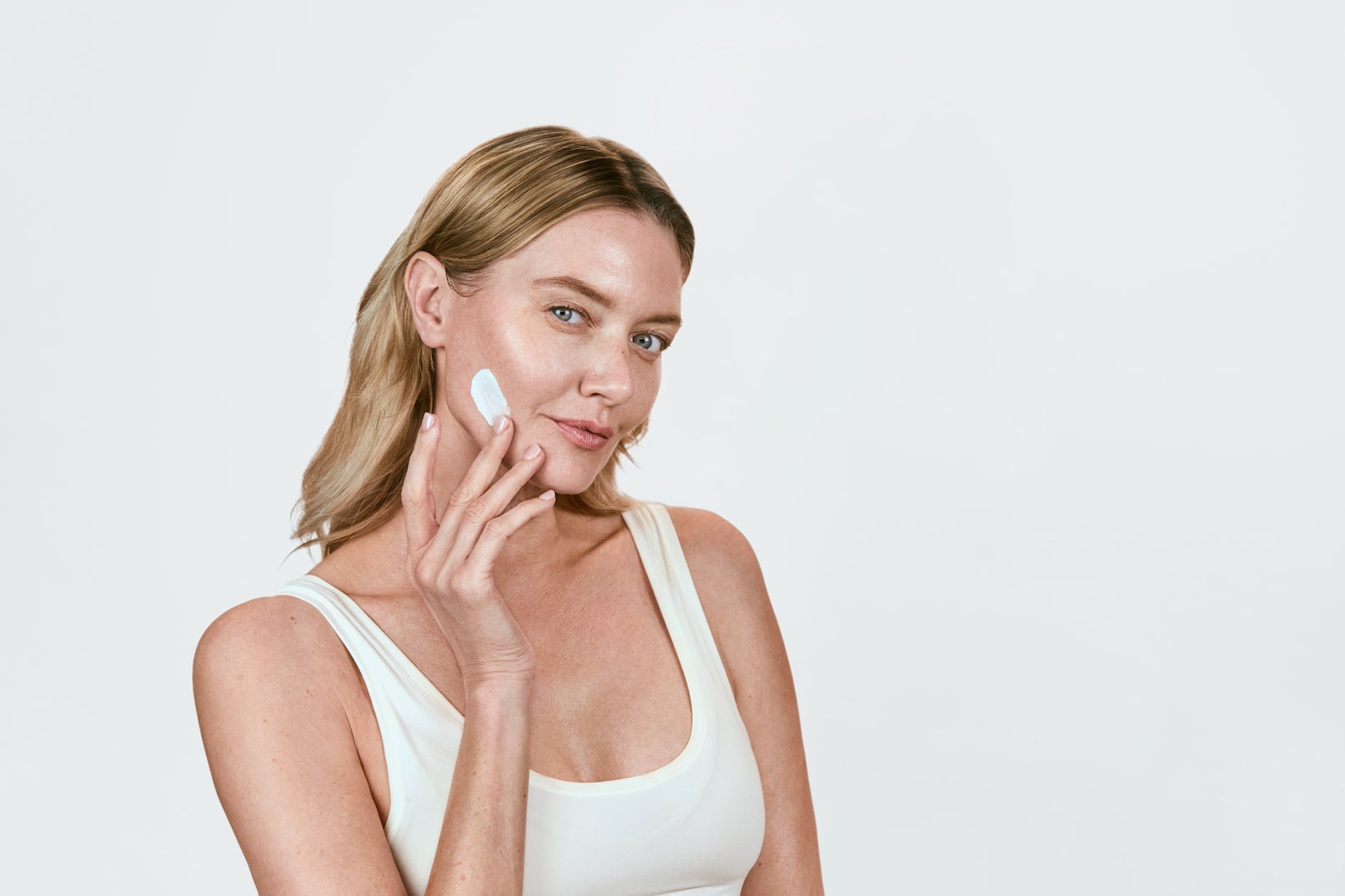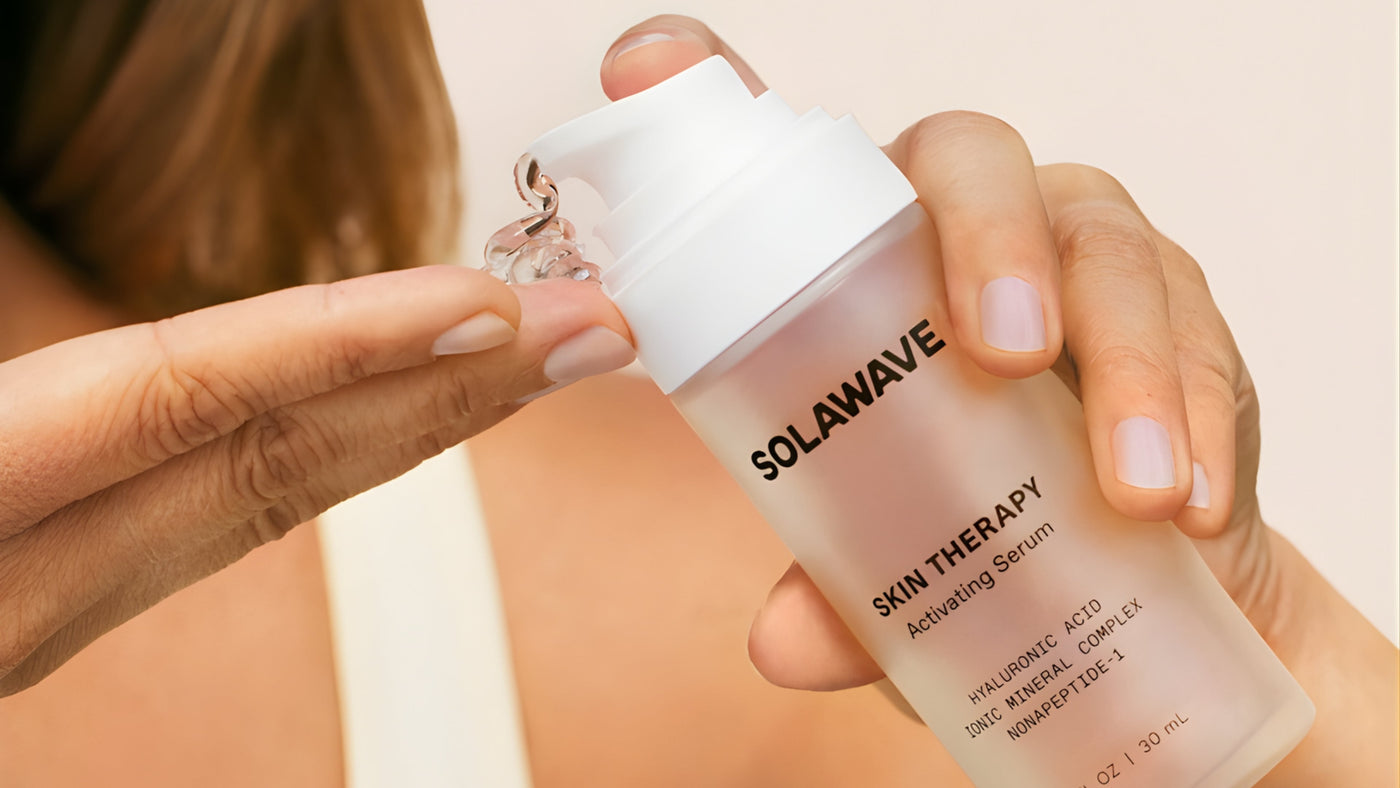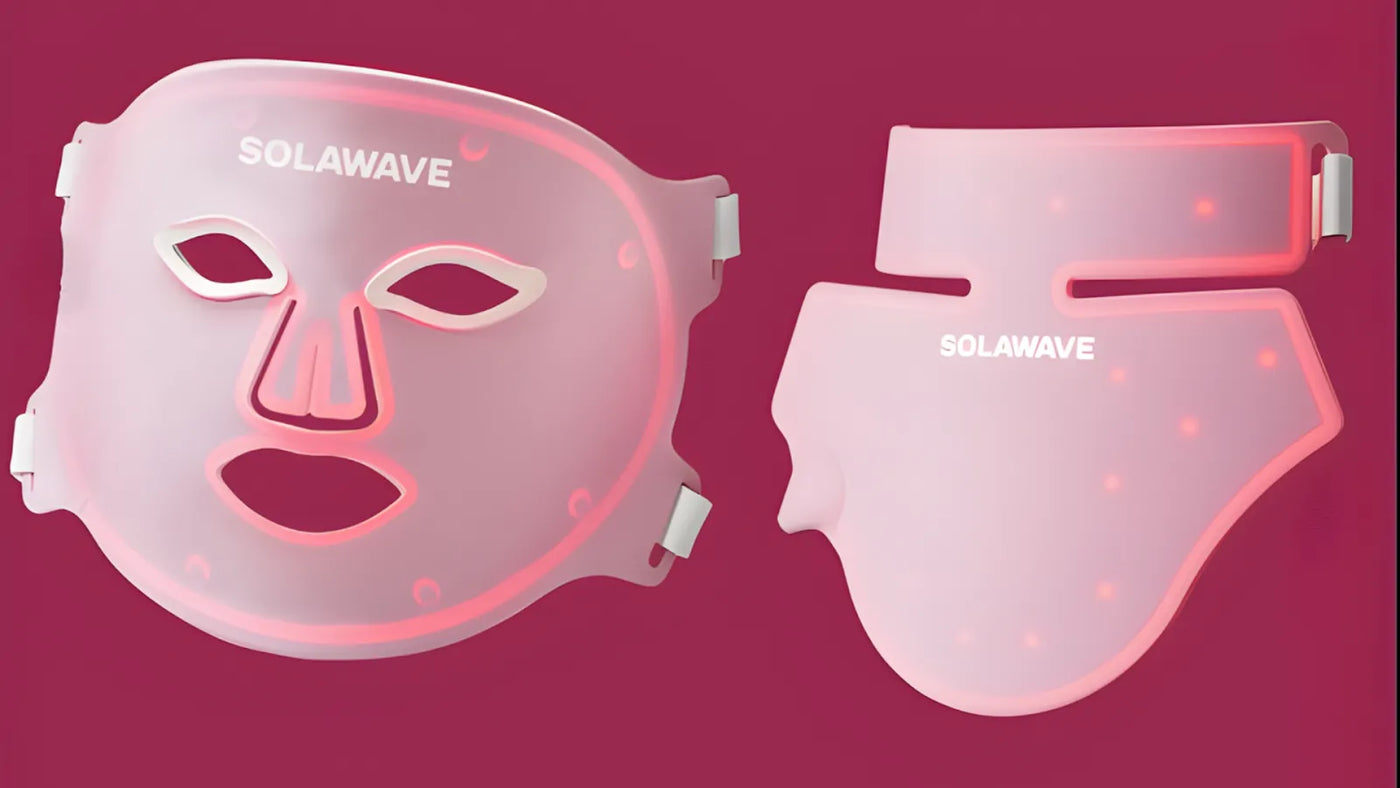

Should I Wear Sunscreen Indoors?
Have you ever wondered if you really need to wear sunscreen when you’re spending most of your day indoors? It’s a question that comes up often, especially as more of us work from home or enjoy time inside near sunny windows.
While it might seem like sunscreen is only necessary for outdoor activities, protecting your skin indoors can play a big role in maintaining a healthy-looking complexion and supporting your skin’s natural defenses against the signs of skin aging. Here's how sunlight and even certain types of indoor light can affect your skin, and how you can make the best choices for your daily routine.
Do You Get Sunlight and UV Exposure Indoors?
You might be surprised to learn that sunlight doesn’t stop at your windows. Glass lets in a notable amount of sunlight, especially if you spend time near large windows, glass doors, or in a sunroom. While you may not feel the warmth of the sun as intensely indoors, your skin can still be exposed to rays that affect its appearance over time.
Sunlight contains two main types of ultraviolet (UV) rays: UVA and UVB. UVB rays are mostly blocked by regular window glass, so you’re less likely to get a sunburn indoors. However, UVA rays are a different story. These rays can pass through most types of glass and reach your skin, even when you’re inside. UVA rays are known for penetrating deeper into the skin, which can contribute to the look of wrinkles, uneven tone, and other visible signs of skin aging.
So, even if you’re not outside, your skin can still be exposed to rays and light sources that may impact its health and appearance. Taking steps to protect your skin indoors can help you maintain a more radiant, even-toned complexion.
Common Myths About Indoor Sun Protection
There are plenty of misconceptions about whether you need to protect your skin while indoors. Let’s clear up some of the most common myths:
“Windows Block All Harmful Rays” Many people believe that sitting behind glass means you’re completely safe from the sun. In reality, while most windows block UVB rays, they don’t stop UVA rays, which can still reach your skin and contribute to the appearance of wrinkles and uneven tone.
“You Can’t Get Sun Damage Indoors” It’s easy to assume that if you’re not outside, your skin isn’t at risk. However, UVA rays can penetrate glass, and over time, this exposure can affect your skin’s appearance, even if you never step outdoors.
“Sunscreen Is Only for Sunny Days” Even on cloudy days or when you’re inside, UVA rays are still present. Consistent sun protection is helpful for supporting a healthier-looking complexion year-round.
“You Only Need Sunscreen If You Burn Easily” Sun protection isn’t just about preventing sunburn. It’s also about supporting your skin’s natural defenses and helping to maintain a more even, radiant appearance over time.
Should I Wear Sunscreen Indoors? Here’s Who Will Benefit Most.
The truth is, some people are more likely to benefit from daily indoor sun protection than others, depending on their habits and environment.
If you spend a lot of time near windows—whether you have a home office with plenty of natural light, a favorite reading spot by a sunny window, or you work in a building with large glass walls—you’re more exposed to UVA rays that can pass through glass. These rays are present all day, not just when the sun feels strongest, and they can contribute to the look of wrinkles, uneven skin tone, and other visible signs of skin aging over time.
Your location and the time of day also matter. If you live in a sunny climate or your workspace faces east or west, you’re likely to get more direct sunlight indoors, especially during the morning or late afternoon. Larger windows or glass doors increase your exposure, as does sitting close to them for extended periods.
People who are focused on maintaining a more even, radiant complexion or who want to support their skin’s natural defenses against the signs of skin aging may find that wearing sunscreen indoors is a helpful step. Even if you don’t notice immediate changes, consistent protection can make a difference in how your skin looks and feels over time.
In short, if you’re regularly near windows, spend hours in front of screens, or want to support your skin’s healthiest appearance, wearing sunscreen indoors is a smart addition to your daily routine.
Choosing the Right Sunscreen for Indoor Use
When you’re indoors, you'll want a sunscreen that feels comfortable and fits easily into your daily routine. Look for lightweight formulas that absorb quickly and don’t leave a greasy or heavy feeling on your skin. Gel-based or fluid sunscreens are often a great choice for indoor use, especially if you prefer a barely-there finish.
Check the label for “broad-spectrum” protection. This means the sunscreen helps shield your skin from both UVA and UVB rays. Even though UVB rays are mostly blocked by glass, UVA rays can still reach you indoors, so broad-spectrum coverage is important. An SPF of 30 is usually enough for most indoor situations, but you can choose a higher SPF if you spend a lot of time near windows or in very sunny rooms.
If you wear makeup or have a multi-step skincare routine, look for sunscreens that layer well without pilling or interfering with other products. Many modern sunscreens are designed to work smoothly under foundation or tinted moisturizer. You can also find options that double as a primer or have a subtle tint for a little extra coverage.
Reapplication is less of a concern indoors, but if you’re near windows for several hours or notice yourself sweating, it’s a good idea to touch up your sunscreen. Powder or spray sunscreens can make reapplying over makeup quick and easy.
The Best Ways To Combat Sun Damage
If you’re already noticing the look of wrinkles, uneven skin tone, or other signs of sun damage, there are several ways you can help your skin look its healthiest:
Light Therapy
Red Light Therapy is a gentle, non-invasive option that supports healthy collagen production, which is essential for smoother, firmer-looking skin. Using Red Light Therapy regularly can improve the appearance of wrinkles and uneven tone, especially those caused by sun damage, helping your skin look more vibrant and refreshed over time.
Best of all, Red Light Therapy devices are more accessible than ever — at-home Light Therapy devices like the Wrinkle Retreat Light Therapy Face Mask make it easy to add Red Light Therapy to your routine without leaving the house or breaking the bank.
Hydrating and Nourishing Skincare
Keeping your skin well-hydrated is key to maintaining a smooth, supple appearance. Look for moisturizers and serums that contain ingredients like hyaluronic acid, glycerin, and nourishing oils to help lock in moisture. Antioxidants such as vitamin C or E can also support your skin’s natural defenses and help brighten the look of uneven tone. Consistent use of these products can help your skin look its healthiest, especially when combined with other targeted treatments.
Exfoliation for Smoother, Brighter Skin
Regular exfoliation helps remove dead skin cells that can make your complexion look dull or uneven. By gently exfoliating once or twice a week, you can reveal fresher, smoother skin and help your other skincare products absorb more effectively. Choose a mild exfoliant—like a gentle scrub or a chemical exfoliant with alpha hydroxy acids (AHAs)—to avoid irritation and support a more even, radiant appearance.
Conclusion
Protecting your skin doesn’t stop when you step indoors. Even if you spend most of your time inside, sunlight and blue light can still reach your skin and affect its appearance over time. By choosing the right sunscreen, staying mindful of your daily habits, and adding supportive treatments like Red Light Therapy, you can help your skin look healthier and more radiant!
Sources:




















